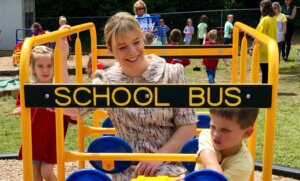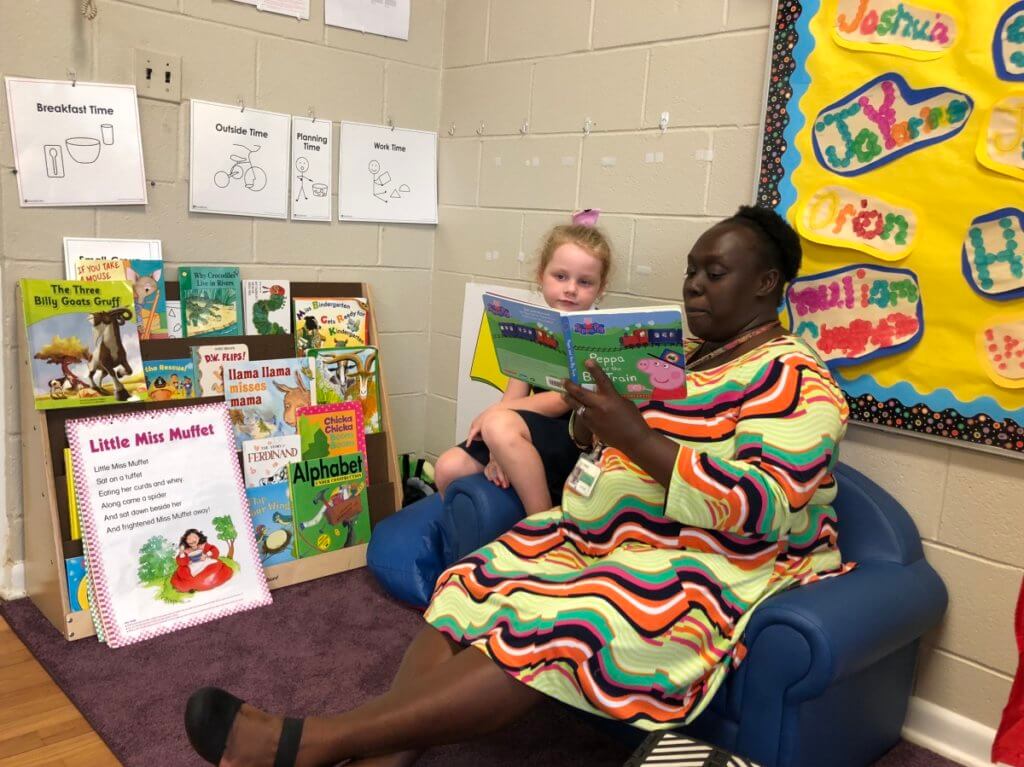A recently released report asserts Alabama’s First Class Pre-K program is the only state-funded pre-kindergarten program in the country that “comes close to having all the elements of a strong pre-k program.”
In its Implementing 15 Essential Elements for High-Quality Pre-K: An Updated Scan of State Polices report, the National Institute for Early Education Research found that Alabama’s First Class Pre-K program fully met 14 of the report’s 15 “essential elements” characterizing high-quality programs, and it partially met the 15th element. Included among these benchmarks were measurements assessing a program’s leadership, early learning policies, and program practices. On average, state-based pre-k programs across the country only met six of these elements.
Advocates from the Alabama School Readiness Alliance lauded NIEER’s latest study. They point out that the state’s adherence to quality is one reason why ongoing research by the University of Alabama at Birmingham and the Public Affairs Research Council of Alabama shows that students that attend First Class Pre-K perform better than their peers on state reading and math assessments.
“The National Institute for Early Education Research is the foremost leader on pre-kindergarten quality and for this organization to continually find Alabama’s program among the nation’s best is a testament to state leaders,” said Allison Muhlendorf, executive director of the Alabama School Readiness Alliance. “The Essential Elements report confirms that the long-term effectiveness of a pre-k program is dependent on its commitment to quality, and we are proud that Alabama continues to differentiate itself as the nation’s standard-bearer in this effort.”
Alabama also received strong marks from NIEER in May when NIEER released its annual State of Preschool Yearbook. That report ranked Alabama’s First Class Pre-K program as the nation’s highest quality program for the 12th consecutive year.
While the NIEER yearbook examines state policies that support state-funded pre-k, the Essential Elements report also reviews the environment needed for states to execute a high-quality pre-kindergarten program, as well as the degree to which states implement these policies.
There are currently 1,045 Alabama First Class Pre-K classrooms located in various public and private schools, child care centers, faith-based centers, Head Start programs, and other community-based preschool settings. However, that is only enough classrooms to enroll 32 percent of four-year-olds across the state.
In 2012, ASRA’s business-led Pre-K Task Force launched a ten-year campaign to advocate for full funding for the First Class Pre-K program through incremental state funding increases. ASRA has estimated that the state would need to appropriate a total level of funding of $144 million to give every Alabama family the opportunity to enroll their four-year-old in a First Class Pre-K program voluntarily. Current state funding for the program is $96 million.







